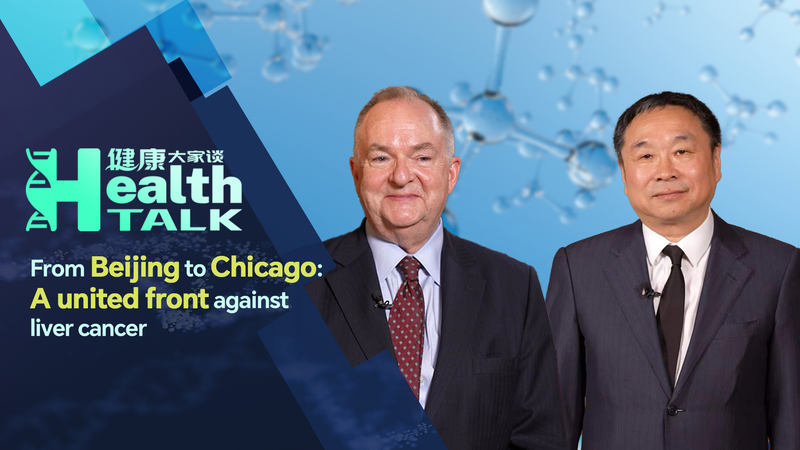On July 28, World Hepatitis Day, two leading liver surgeons\u000E\u000E\u000E\u000E\u000E\u000E\u000E\u000E\u000E\u000E\u000E\u000E\u000E\u000E—Professor Mao Yilei from the Peking Union Medical College Hospital in the Chinese mainland and Professor Michael Millis of the University of Chicago Medicine—came together in a CGTN Health Talk interview to discuss global advances in hepatitis B (HBV) prevention and liver cancer care.
Over the past decade, the Chinese mainland has seen a remarkable decline in HBV infections thanks to enhanced surveillance and prevention programs. The latest national survey shows the carrier rate among children under five has plummeted to 0.3 percent. Even more impressively, the three-dose vaccination coverage for newborns has stayed above 95 percent, reaching the World Health Organization\u00002019s 2030 target ahead of schedule.
"Stopping HBV transmission is our best defense against serious liver diseases," says Professor Mao. HBV can lead to cirrhosis, liver failure and, ultimately, hepatocellular carcinoma\u000020\u000020\u000020—the most common type of liver cancer.
Both experts emphasize that early detection is key. People living with HBV or cirrhosis should schedule ultrasound or CT scans every six months to catch hepatocellular carcinoma in its earliest, most treatable stages.
Beyond prevention and screening, the two professors highlighted the power of international collaboration. Through student exchanges, joint conferences and shared research projects, they are building a bi-continental network to accelerate breakthroughs in diagnosis and treatment.
As the world strives to eliminate viral hepatitis as a public health threat, this united front—from hospital corridors in Beijing in the Chinese mainland to Chicago\u000020\u000020\u000020\u000020\u000020\u000020\u000020\u000020\u000020\u000020 labs—demonstrates how cross-border partnerships can make a real-world impact on global health.
Reference(s):
From Beijing to Chicago: A united front against liver cancer
cgtn.com




